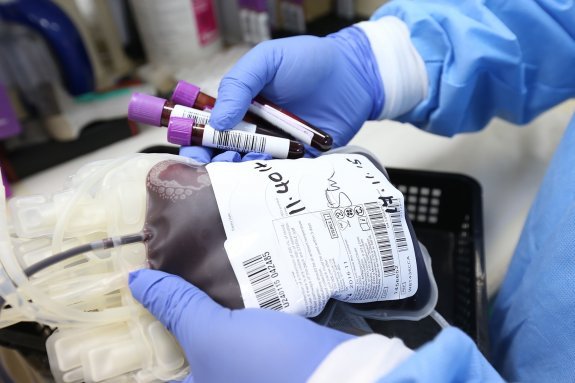Blog
Health Insurance Companies Cannot Automatically Refuse Jehovah's Witnesses Request For Reimbursement of Medical Care Available Abroad

The Court of Justice of the European Union has repeatedly ruled on the issue of interstate reimbursement of healthcare. However, this case is controversial due to its unique facts and circumstances. Latvia refused to give a patient- a minor boy and a Jehovah's Witness, permission to undergo heart surgery in Poland. None of the Latvian healthcare providers were able to offer heart surgery without a blood transfusion, which Jehovah's Witnesses refuse. Therefore, the minor's father negotiated the possibility of performing the surgery in Poland, and asked the Latvian health insurance company to issue a permit for the surgery. The Latvian insurance company refused to issue the permit on the grounds that the minor's state of health does not require urgent provision of healthcare and, above all, the required healthcare can be provided to the minor under the same conditions as other patients. The father argued that health care was not actually available for his son in Latvia, and pointed out the inadmissible discrimination in access to healthcare on the grounds of their religion.
The system of providing hospital care in another Member State of the European Union works in such a way that Member States can reimburse the costs of care available in another Member State subject to prior authorization. In the Czech Republic, a permit authorising healthcare in another Member State is granted by the relevant health insurance company. Upon request, the insurance provider examines whether effective care is actually available for the patient in the Czech Republic. The Court has now said that fundamental rights, in particular the prohibition of any discrimination on grounds of religion or belief in Article 21 of the Charter of Fundamental Rights of the European Union, must also be respected in determining whether effective care is available in the home country. Restrictions must also not be an unjustified obstacle to the free movement of patients.
Member States typically argue that a system of prior consent protects sustainable access to a balanced supply of quality healthcare and the financial stability of the social security system. The Court has stated that both objectives are legitimate, but that it is always necessary to examine whether the instruments to achieve them are proportionate and legitimate. It states that the Member State in which the patient is insured will compensate or directly reimburse the costs of cross-border healthcare only to the extent of the costs that it would have borne if the healthcare had been provided in its territory.
Thus, a health insurance company cannot automatically refuse to authorize the reimbursement of hospital healthcare in another Member State for a patient who is insured with this insurance company if the hospital treatment, which is unquestionably effective, is available in the home Member State, but the treatment contradicts the patient's religious beliefs. The exception to this rule applies in cases where the health insurance company is able to objectively justify the refusal with a legitimate aim of securing treatment capacity or the competence of medical professionals, and the refusal is demonstrated as a proportionate and necessary means of achieving that aim. In the event of a dispute, the court must verify this.
More articles:

Starting July, it is permissible to plant tree avenues half a meter from adjacent fie...
A new legal regulation will allow planting trees along roads that are at a distance of 0.5 meters from the boundaries of adjacent plots. This amendment to the Road Act will have a positive impact on efforts to plant trees, tree avenues... → continue
Stewarts
'No one has done as much for me as you,' Eva said.
Stewarts
"A visit to her daughter in London turned Eva's life upside down when she says she stepped into a crossing on a green light but was hit by a car. Despite her remarkable bravery, she faced a long treatment due to fractures in her pelvis, and the associated limitations and pain are likely to persist for the rest of her life. Regular headaches and impaired concentration compound her challenges.
Eva contacted us through an organization temporarily helping her manage her difficult living situation. At that time, she was destitute, relying only on subsistence payments. We were able to assist her because we specialize in personal injury and have contacts with proven colleagues abroad.
We worked with Stewarts, a UK law firm, on this case. Attorneys Klára Dvořáková and Rebecca Huxford helped Eva with the documentation in her case, explaining her options and the differences between the Czech and British systems of healthcare and social benefits reimbursement. Within a few months, thanks to the professional cooperation between the two offices, an offer of compensation from the insurance company of approximately CZK seven million was achieved. The client accepted this settlement because she did not want to deal with courts in the United Kingdom.
Subsequently, we assisted the client with related tax issues and contacted Auditone, a tax consultancy firm, which arranged for the filing of a tax return. Compensation for lost income is taxable, unlike most personal injury compensation.
'No one has done as much for me as you,' Eva said.
The fact that we were able to help Eva gives our work meaning and brings us great joy. We are very happy that, thanks to our many years of active involvement in the international professional organization PEOPIL, we can cooperate on such cases."
Livingstone, Tour Operator
Thank you again for your valuable advice. I breathe better when I know who to turn to.
Livingstone, Tour Operator
"Thank you again for your valuable advice. I breathe better when I know who to turn to."
Anders Thorsen Advokatanpartsselskab
It has been an absolute pleasure to work with you.
Anders Thorsen Advokatanpartsselskab
"It has been an absolute pleasure to work with you and your colleagues. Your advice and way of handling the matter and our communication has been of the highest quality and we are very happy with the outcome.
If any of my clients need assistance in matters in the Czech Republic in the future, I know who to recommend."




